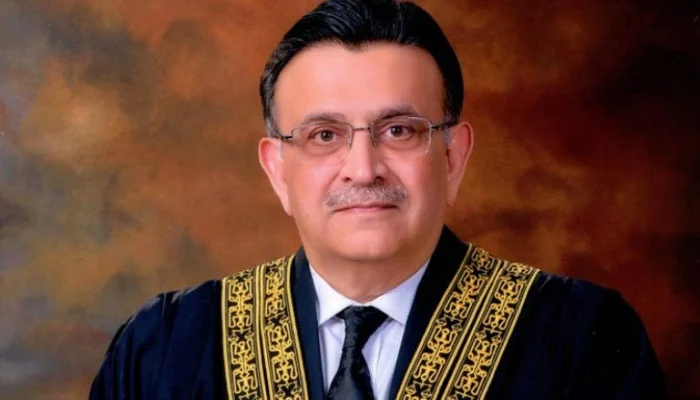
While hearing PTI chairman Imran Khan's petition on Tuesday challenging recent amendments in the National Accountability Ordinance, Chief Justice of Pakistan Justice Umar Ata Bandial remarked that corruption in the country couldn’t be eradicated, in spite of court decisions, due to "weaknesses in the system". State media carried the justice's remarks during the hearing in court.
The CJP also said that no efforts had been ever made to remove these weaknesses in the system. "It was the responsibility of the Parliament to introduce legislation for bringing betterment in the system and ensure implementation of it", he remarked during the hearing.
The Chief Justice also noted that IGs in the provinces used to be changed after every five months, while SHOs of police stations used to be replaced within three months.
The CJP remarked that the apex court had given verdicts in the Pakistan Steel Mills and Reko Diq cases "with good intentions", but "the government couldn’t fix corruption in the projects due to weaknesses in the system".
The chief justice also remarked that businesses of many people had been destroyed due to the misuse of NAB law in the country. "However, no one should be forgiven for committing corruption", the top judge clarified.
Justice Mansoor Ali Shah remarked that there shouldn’t be corruption in the system, but asked who would take steps to curb it. The judiciary had to interfere when the system was being destroyed, he added.
The bench questioned under what law it could terminate the NAB amendments on conflicts of interest.
Petitioner’s lawyer Khawaja Haris contended that the executive is responsible for taking measures to eradicate corruption.
The court adjourned further hearing of the case till December 14.
The CJP also said that no efforts had been ever made to remove these weaknesses in the system. "It was the responsibility of the Parliament to introduce legislation for bringing betterment in the system and ensure implementation of it", he remarked during the hearing.
The Chief Justice also noted that IGs in the provinces used to be changed after every five months, while SHOs of police stations used to be replaced within three months.
The CJP remarked that the apex court had given verdicts in the Pakistan Steel Mills and Reko Diq cases "with good intentions", but "the government couldn’t fix corruption in the projects due to weaknesses in the system".
The chief justice also remarked that businesses of many people had been destroyed due to the misuse of NAB law in the country. "However, no one should be forgiven for committing corruption", the top judge clarified.
Justice Mansoor Ali Shah remarked that there shouldn’t be corruption in the system, but asked who would take steps to curb it. The judiciary had to interfere when the system was being destroyed, he added.
The bench questioned under what law it could terminate the NAB amendments on conflicts of interest.
Petitioner’s lawyer Khawaja Haris contended that the executive is responsible for taking measures to eradicate corruption.
The court adjourned further hearing of the case till December 14.

